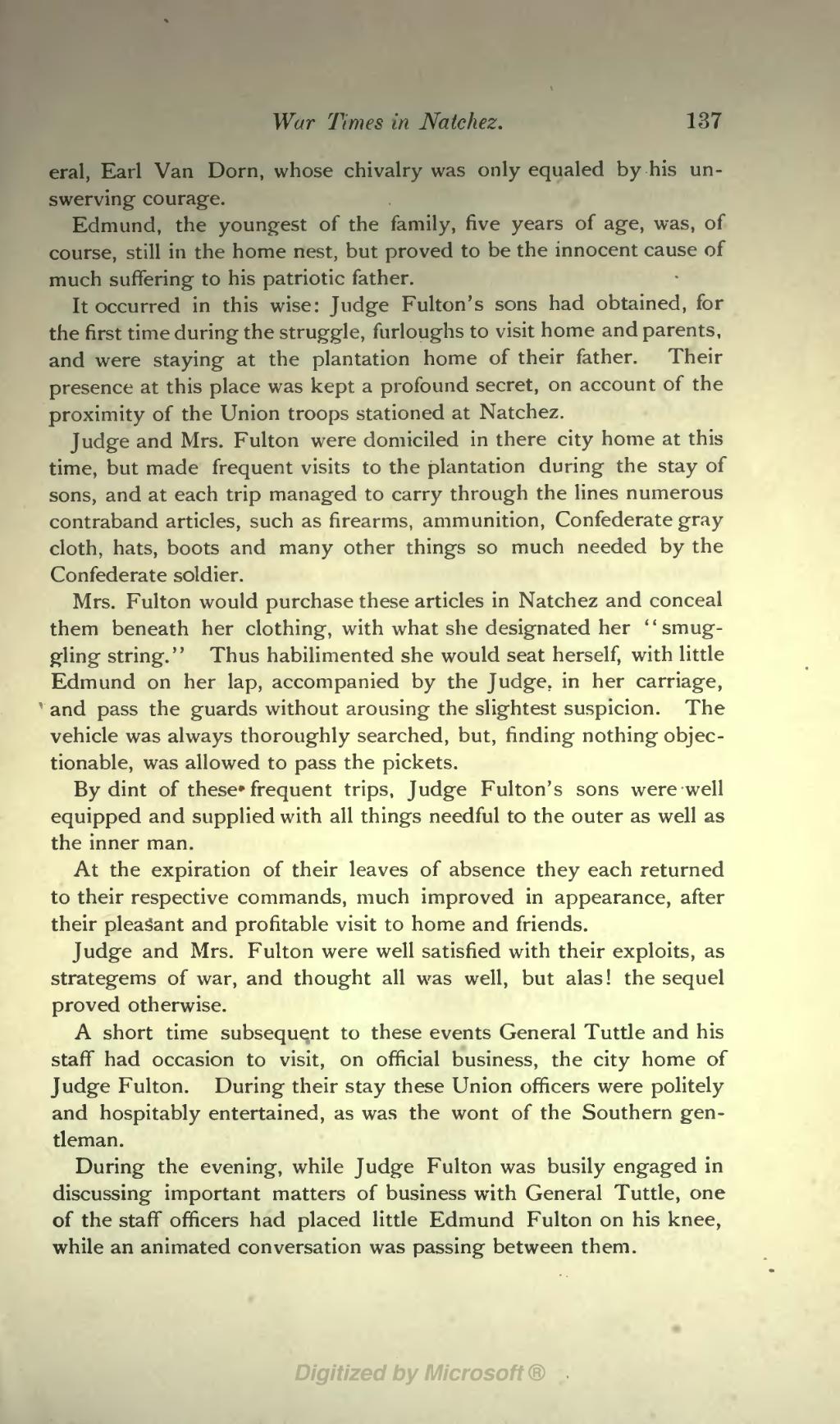War Times in Natchez. 137
eral, Earl Van Dorn, whose chivalry was only equaled by his un- swerving courage.
Edmund, the youngest of the family, five years of age, was, of course, still in the home nest, but proved to be the innocent cause of much suffering to his patriotic father.
It occurred in this wise: Judge Fulton's sons had obtained, for the first time during the struggle, furloughs to visit home and parents, and were staying at the plantation home of their father. Their presence at this place was kept a profound secret, on account of the proximity of the Union troops stationed at Natchez.
Judge and Mrs. Fulton were domiciled in there city home at this time, but made frequent visits to the plantation during the stay of sons, and at each trip managed to carry through the lines numerous contraband articles, such as firearms, ammunition, Confederate gray cloth, hats, boots and many other things so much needed by the Confederate soldier.
Mrs. Fulton would purchase these articles in Natchez and conceal them beneath her clothing, with what she designated her "smug- gling string." Thus habilimented she would seat herself, with little Edmund on her lap, accompanied by the Judge, in her carriage, and pass the guards without arousing the slightest suspicion. The vehicle was always thoroughly searched, but, finding nothing objec- tionable, was allowed to pass the pickets.
By dint of these* frequent trips, Judge Fulton's sons were -well equipped and supplied with all things needful to the outer as well as the inner man.
At the expiration of their leaves of absence they each returned to their respective commands, much improved in appearance, after their pleasant and profitable visit to home and friends.
Judge and Mrs. Fulton were well satisfied with their exploits, as strategems of war, and thought all was well, but alas! the sequel proved otherwise.
A short time subsequent to these events General Tuttle and his staff had occasion to visit, on official business, the city home of Judge Fulton. During their stay these Union officers were politely and hospitably entertained, as was the wont of the Southern gen- tleman.
During the evening, while Judge Fulton was busily engaged in discussing important matters of business with General Tuttle, one of the staff officers had placed little Edmund Fulton on his knee, while an animated conversation was passing between them.
